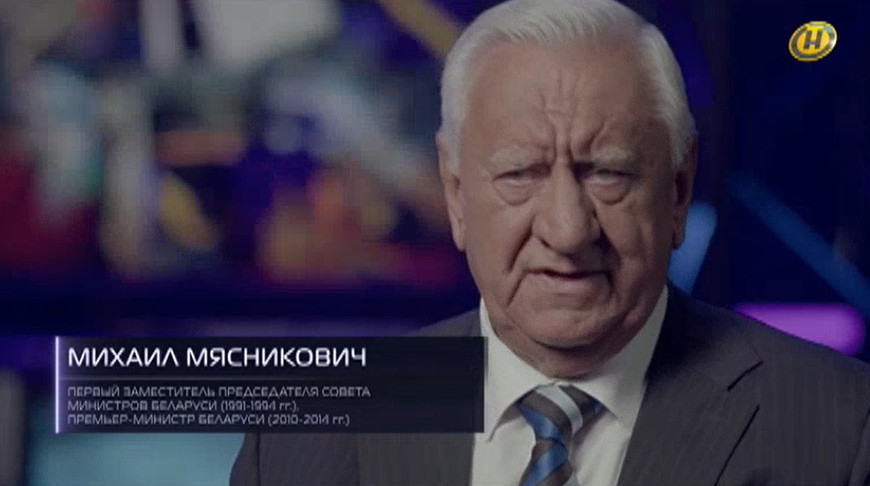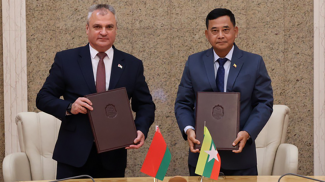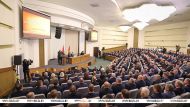
MINSK, 12 July (BelTA) – After the USSR collapse Belarusians were intent on transitioning to a market economy. However, they did not understand what this kind of economy is exactly. Mikhail Myasnikovich, who worked as the first deputy chairman of Belarus’ Council of Ministers in 1991-1994 and as the prime minister in 2010-2014, shared recollections as part of the documentary “One for all” released by the Belarusian TV channel ONT on the occasion of the 30th anniversary of the introduction of presidency in Belarus, BelTA has learned.
Mikhail Myasnikovich said: “The center [in Moscow as the capital city of the Soviet Union where the central government made all the principal decisions] was no more. Transition from an administrative economy, a directive-based economy towards a market economy was in progress. Perception of the latter was rather vague.”
Steps towards the market economy relied primarily on textbooks, which praised the market economy. “Embrace the will of the market and so on and so forth while forgetting that there are social problems that worry everyone,” he said.
At the same time it was noted that Belarus’ agriculture had been considered exemplary for a long time. Delegations from the entire Soviet Union would come here to borrow the best practices. Belarus had only about 2% of the USSR’s farmlands but the republic accounted for 6% of the USSR’s meat output, 7% of milk output, 25% of flax output, and 17% of potato output.
“It was the biggest paradox of the 1990s. Belarus was already a sovereign state. It means all kinds of things should be available in excessive amounts. But it didn’t happen. Shop shelves were empty while prices for the goods that were available were sky-high. Soviet money was just paper. People didn’t want shows. They wanted bread,” the documentary noted.













